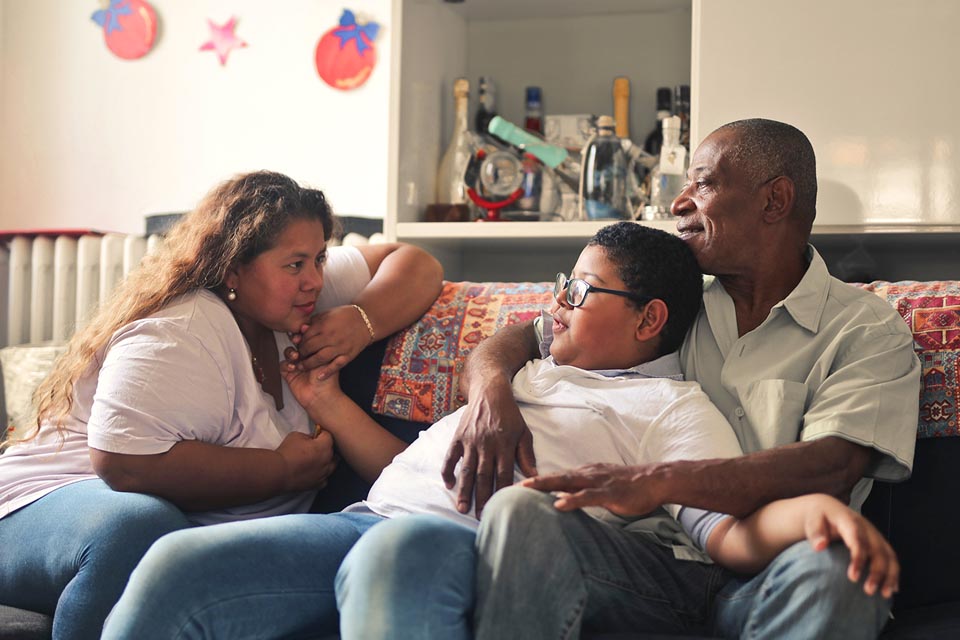It’s homework time. Usually, this portion of the day goes off without a hitch, but not today. Today, your seventh grader presented an algebra problem that neither of you can figure out. Tensions rise as you raise your voice in frustration, and your child begins to cry, confused as to why you can’t seem to help them this time.
Both parties feel palpable discomfort in this parent-child scenario, but neither can express the reasoning behind it. Emotional and social intelligence helps us be mindful of personal feelings and those of others.
While both involve feelings or emotions, emotional and social intelligence are distinct forms of intelligence.
Positive Action puts it this way: emotional intelligence involves self-awareness or self-control, while social intelligence is sensitive “toward the feelings, moods, and motivations of others,” which helps people to interact with others in group settings (school, parties, road trips, etc.).
Parents of middle schoolers should be familiar with social-emotional intelligence because it helps them recognize unregulated behaviors (screaming, outbursts, and other hysterics) and keeps them present in the interactions with their children. Mastering social-emotional intelligence as a parent provides a model of healthy self-awareness for middle schoolers.
Why is social-emotional intelligence vital?
Yale Medicine points out that “we have more anxiety than ever before in the modern world.” Covid may not be hitting the news cycle daily, but it’s still around. There’s war in the Gaza Strip. A family pack of decent toilet paper is almost twenty dollars, and thousands of us have become nailbiters waiting for the Biden Administration to cancel our student loan debt, too. There’s a lot to be anxious about, triggering people differently. Social-emotional intelligence makes us self-aware of these feelings and those around us.
Emotional intelligence is also crucial to learning because it teaches us self-control or how to manage ourselves. Let’s go back to the homework example; one way the parent could’ve modeled social-emotional intelligence would’ve been taking a couple of deep breaths and suggesting that they take a short break from homework time to regroup.
According to HelpGuide, emotional intelligence also impacts us directly in other ways. Our level of emotional intelligence influences at work or school, physical and mental health, and relationships outside the home.
For example:
- High emotional intelligence can help you navigate the social complexities of the workplace, helping you advance in your career. A middle schooler with high social-emotional intelligence may understand their friend group more deeply than their peers.
- If you can’t manage your emotions, you are probably not managing your stress.
- The inability to use self-control when frustrated, especially for household routines like dinner time and homework, can cause unnecessary stress and anxiety for middle schoolers. They’ll walk around the house on eggshells, never fully comfortable in their own home.
- Relationships, in general, are substantially better when social-emotional intelligence is present. By understanding your emotions and how to control them, you can better express how you feel and understand how others are feeling.
How can I implement social-emotional learning at home?
Many schools conduct a degree of social-emotional learning with students. Still, you can also enhance your middle schoolers’ emotional intelligence skills at home.
Parents identify the following activities to build social-emotional skills at home.
Cultivate empathy by consuming media.
Referencing the Gaza war again, use discretion and show them an emotional news clip. Then, ask how it made them feel and continue the conversation.
Create schedules and to-do lists.
Making lists can help your middle schoolers learn responsibility and prioritize their time. Help them make lists for chores, groceries, or goals they want to accomplish.
Do stress-relieving activities
No work, just fun. Pick something that puts you both at ease that you can enjoy together.
Journal
Writing is an excellent way to articulate feelings. Encourage your child to list things that bring them joy. For example, walking the family dog, playing board games with siblings, and eating their favorite dinner. They’ll practice self-awareness (understanding what they like) and self-management (understanding how they react to things they enjoy).
Encourage them to draw their emotions.
Is the color red angry? Does the color blue mean sad? If your kid struggles to vocalize their problems, drawing may be a better approach to helping them express their feelings.
Help them conduct random acts of kindness.
Simple deeds are appreciated. Send them to school with a Starbucks gift card for their favorite teacher or sponsor lunch for their class one day. Another option is to ask them to write a short list of people they’d like to do one nice thing for.
Write letters.
Have relatives that live out of town? Help your middle schooler bond with extended family through old-fashioned letter writing.
Volunteer
Donate in-kind items or your time to local shelters and community initiatives. Afterward, strike up a conversation with your kid to find out how the experience impacted them.
Activating social and emotional intelligence can take your parenting game to new heights as you practice self-awareness and present a healthy model of self-control and consideration of others.
Learn how social-emotional intelligence helps promote effective, empowering communication with family and beyond in YLC’s Parents R People 2 program.







